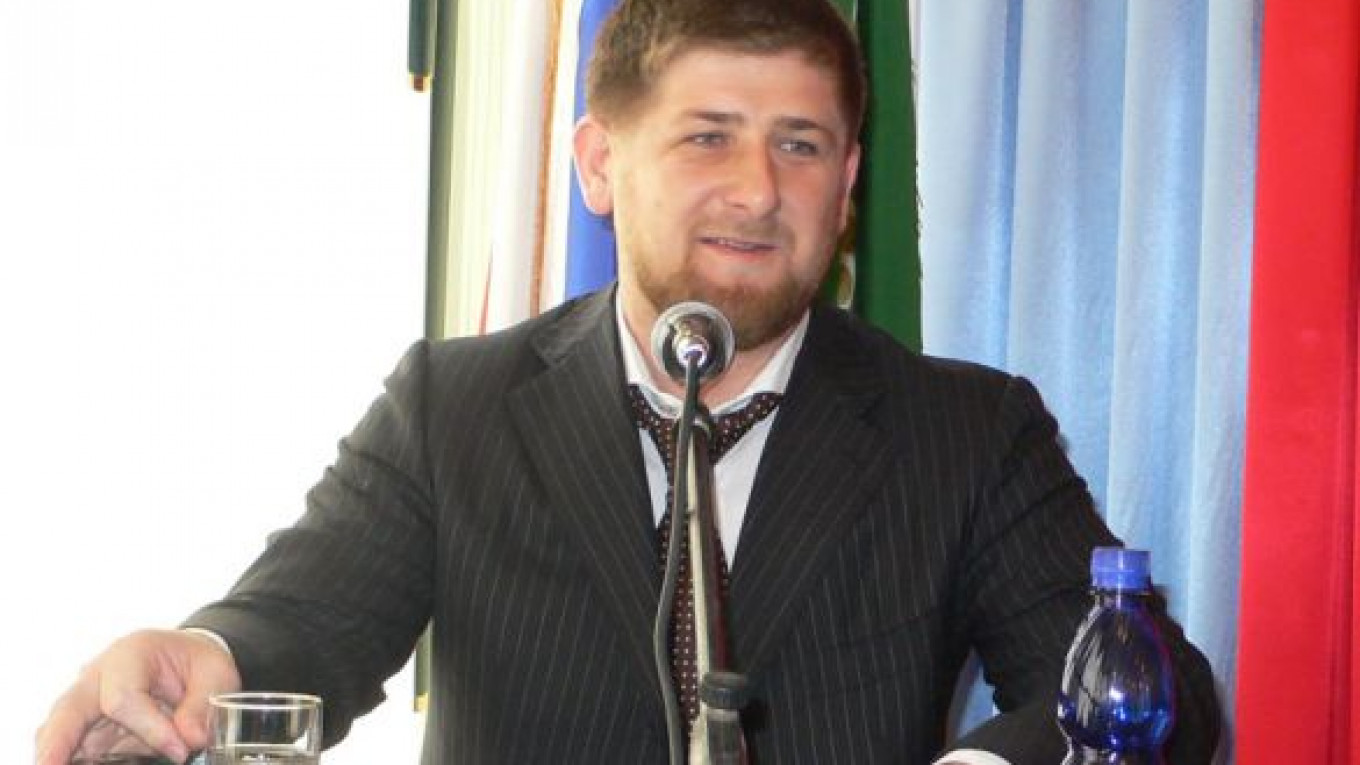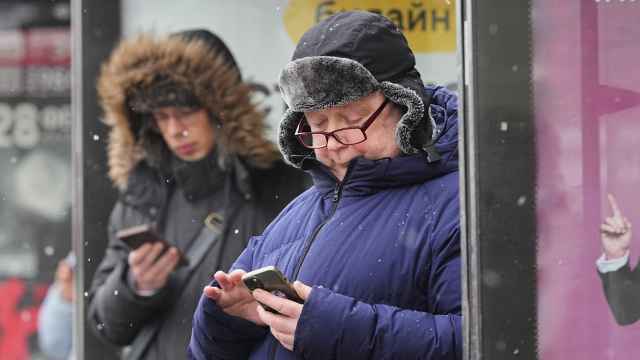A standoff between Chechen leader Ramzan Kadyrov and his Ingush counterpart, Yunus-Bek Yevkurov, heated up Monday when Chechnya declared the creation of a "bilateral commission" to delineate the internal border with Ingushetia.
The move, announced on the Chechen government's website, seemingly took Ingush authorities by surprise. Reached by telephone, a spokesman in Yevkurov's administration Monday evening that Ingush authorities would not comment before Tuesday. http://
On Sunday, Kadyrov officially laid claim to huge swaths of the neighboring republic's territory. "Everybody knows that the Sunzhensky district and significant parts of the Malgobek district are part of Chechnya," he said in a .
Kadyrov accused the Ingush leadership of a "provocation" by justifying the illegal seizure of Chechen land under agreements signed by Dzhokhar Dudayev, Chechnya's first separatist leader who was killed by federal troops in 1996.
Kadyrov said that nothing signed under Dudayev could be accepted because that would mean recognizing his "criminal regime." Talk about documents defining the border between the two republics is "fabrication and lies," he said.
Yevkurov retorted that the border should have been delineated long ago. "The presence of an administrative boundary will strengthen our relations and keep out third-party forces that try to put our people at odds," he told Interfax.
Ingushetia and Chechnya formed a joint Soviet republic until 1991, when the Ingush leadership decided not to seek independence like their Chechen neighbors.
Subsequent Chechen leaderships, both separatists and pro-Kremlin, have questioned the border with Ingushetia, which follows Soviet-era district boundaries. They have pointed out that both the Sunzhensky and the Malgobek districts include ethnic Chechen villages.
In 2006, Chechen parliamentary speaker Dukvakha Abdurakhmanov caused an uproar by suggesting a merger of Chechnya with both Ingushetia and Dagestan, the region's eastern neighbor.
Chechens and Ingush consider themselves closely related, although both have distinct languages and traditions.
Ingushetia is the smallest and poorest of the country's 83 regions. The Sunzhensky district alone makes up almost half of the republic's territory and boasts 130,000 people, or a third of Ingushetia's population of just over 400,000. By contrast, Chechnya has 1.2 million inhabitants.
The latest spat comes only weeks after both leaders traded barbs about an explosion in an Ingush village, which Kadyrov claimed was an anti-terror operation by Chechen police while Yevkurov said it was an accident.
Analysts said that despite his powerful position in both Chechnya and Moscow, Kadyrov was unlikely to win in the dispute.
Maxim Agarkov, of the SK-Strategia think tank, said that Yevkurov, a former career military officer, has powerful support from the security services in Moscow. He also said Kadyrov had acted unwisely by saying in his statement Sunday that he would raise the issue with the federal government. "The Kremlin does not like to come under pressure from the regions," he said.
Tanya Lokshina, a Caucasus researcher with Human Rights Watch, said the Chechen leadership's desire to widen its influence was clear, but the boundary issue should not be raised because it would only whip up ethnic divisions in the volatile region. "Let sleeping dogs lie," she said.
Related articles:
A Message from The Moscow Times:
Dear readers,
We are facing unprecedented challenges. Russia's Prosecutor General's Office has designated The Moscow Times as an "undesirable" organization, criminalizing our work and putting our staff at risk of prosecution. This follows our earlier unjust labeling as a "foreign agent."
These actions are direct attempts to silence independent journalism in Russia. The authorities claim our work "discredits the decisions of the Russian leadership." We see things differently: we strive to provide accurate, unbiased reporting on Russia.
We, the journalists of The Moscow Times, refuse to be silenced. But to continue our work, we need your help.
Your support, no matter how small, makes a world of difference. If you can, please support us monthly starting from just $2. It's quick to set up, and every contribution makes a significant impact.
By supporting The Moscow Times, you're defending open, independent journalism in the face of repression. Thank you for standing with us.
Remind me later.







